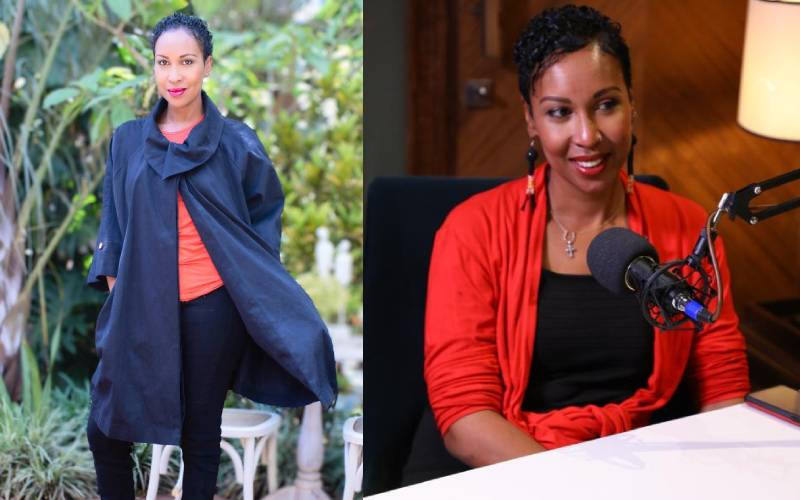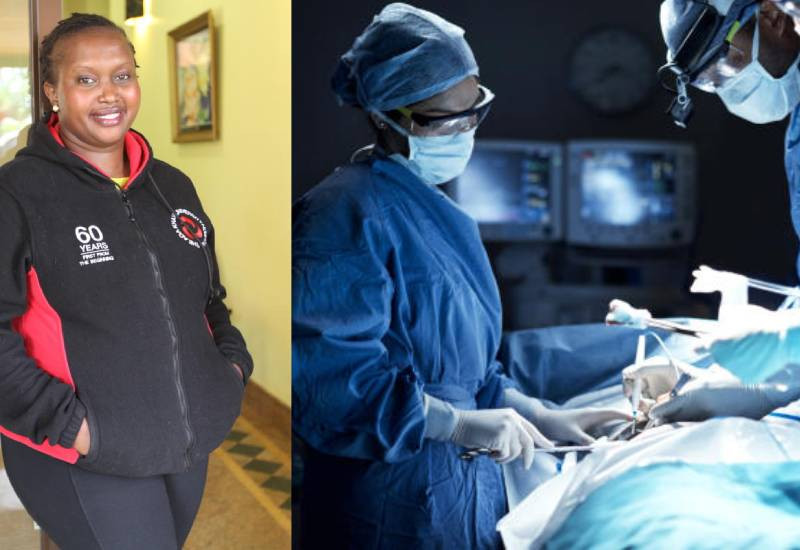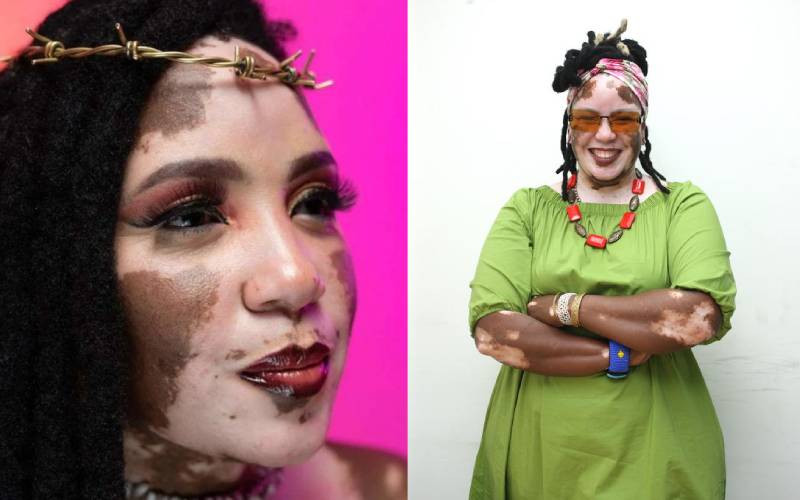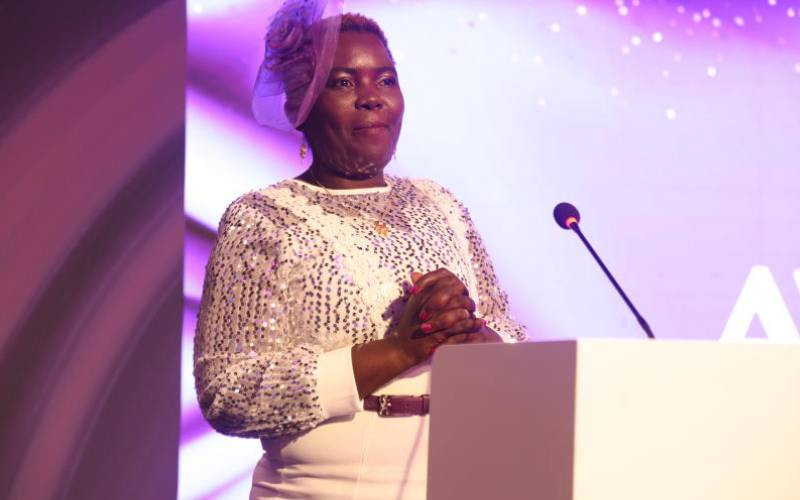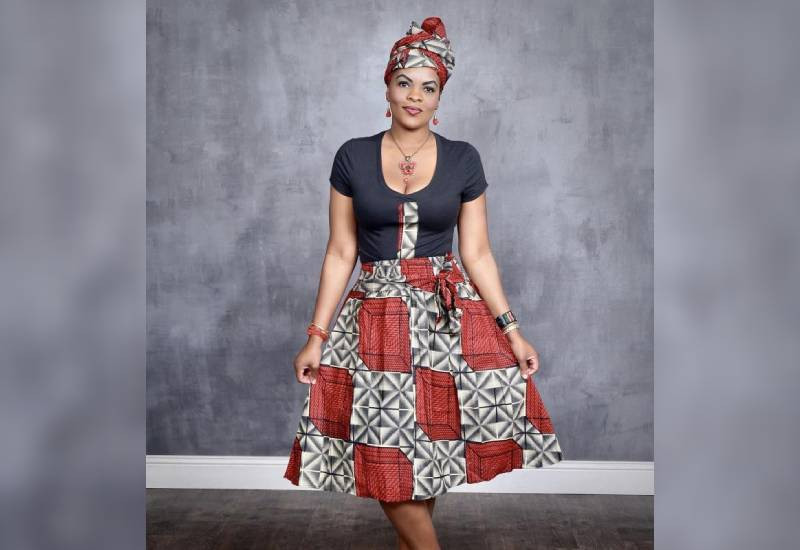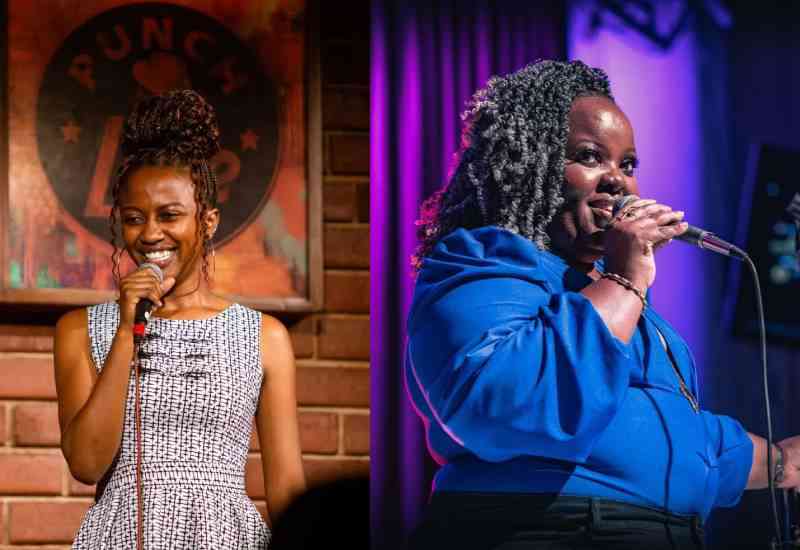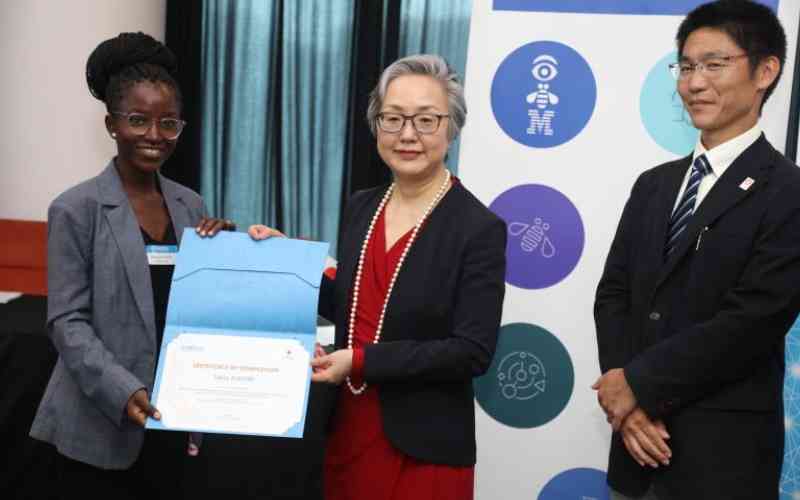
When celebrity natural hair stylist FELICIA LEATHERWOOD was growing up in the US, her kinky hair was a nightmare to her mom. But when she turned nine, she decided to experiment and later made a career out of giving hair advice to people. She speaks to ROSE KWAMBOKA
Growing up as a girl with kinky hair in California was no mean feat for Felicia Leatherwood. With her mother not knowing how to handle her hair, the responsibility was left to her father and sometimes her grandmother.
"For a long time, I ran around with a dry afro," she says but that turned around when she was nine. "I begged my mother to allow me style my own hair, but as it turns out, the begging was not necessary, for she was more than glad to oblige," she explains of how empowered she felt when her mother handed her the combs and brushes.
"Though she did not realise it, my mother set me off on an amazing wondrous journey of natural hair and creating what I have done and still do to this very day."
The first lesson she was quick to learn in her natural hair journey was that when you embrace natural hair, it gives one so much self-confidence.
"With natural hair, beauty is in your own eyes first, because a lot of times we let other people influence us," she says before quickly adding that sometimes the influence is positive but most times the influence tends to be away from what we are and it is at that point that we lose ourselves and our self-esteem.
Straight hair

By the time she was in high school, she had perfected the art of styling natural hair and would even style her classmates' hair and other clients from home. Convinced that this was her calling, she went on to enroll for a cosmetology course at Santa Monica College in California.
Two years later, she had a degree in cosmetology and had learnt everything there was to learn about hair; what chemicals are safe for hair, how to press hair without burning it, the codes and regulations of the different chemicals, how to alter the hair's crow pattern without damaging the hair, only to mention a few.
The problem was the school only taught straight hair techniques. "It was like natural hair did not exist," says the 47-year-old.
"I had clients I would attend to after school. I would lock and twist hair so well, that the instructor asked me on more occasions than one to teach the other students how to do what I was doing," she remembers fondly.
"At one point, the instructor asked if I could stay and become one of the instructors," she says of the request she turned down not knowing she will be teaching naturalists around the world through workshops and other public speaking events.
She eventually started working at the prestigious Millennium Hair Salon in Los Angeles after working behind the scenes at Black Entertainment Television and the Warner Bros productions.
"Everyone who was anyone was going to the salon to get their hair done. That is where I built my reputation as a personal natural hair stylist", she says.
So why did she go to cosmetology school where she was more of a teacher than a student, and got no skill addition as a result?
"I had to get my licence. After the state saw natural hair stylists making money without a licence - for a licence was required to handle all the chemicals used for straight hair and natural hair requires none of the chemicals - they declared natural salons illegal.
They would burst in on shops and close them down," she says as she recalls countless incidents of officials who would come into a natural hair salon, get their hair braided and just when they were about to pay, they would slap handcuffs on the hair stylist and shut them down. "I did not want to end up in such a situation."
As harsh as the regulations felt at the time, she is saddened by the lack of regulation in Kenya in as much as Nairobi ranks in the top five of the most natural-hair-friendly cities in the world after New York, Atlanta, London and Chicago by Klassy Kinks in 2014.
Hair loss
"It is dangerous for salons to operate without regulation especially for the younger generations who are learning through apprenticeship. You influence the younger generations to do what you do, and that in itself is a ticking time bomb," she explains adding that once the learner tries to recreate the pattern of applying relaxer without knowing how long it should stay, it is such kind of practices that lead to women causing damage and losing their hair when they are young.
"Traction Alopecia – a form of gradual hair loss, caused primarily by pulling force being applied to the hair is a common form of hair loss by women that results from wearing one's weave or braids too tight – is a common hair loss in women," she says adding, "Many women do not know how long to keep their weave or braids, when and how to take them out."
She advises that depending on the kink (how tightly curled) and texture of one's hair one should only keep braids, tight ponytails and pigtails for between four to six weeks, beyond which one is at risk of a lot hair loss.
The weight of the hair also contributes to this hair loss. Such are among the issues she tackles in her engagements with naturalists around the world.
To women with traction alopecia, or those wanting to transition to natural hair, she says that the 'big chop' is not the only alternative. "I only had the 'big chop' myself so I am able to serve my clients better, otherwise I would spend time I do not have tending to my hair," she says of her hair which she wears short and has dyed it the colour of royalty to keep things interesting.
"I only recommend the 'big chop' as a last resort since most women have such an emotional relationship with their hair and would struggle with short hair," she states.
Red carpet

Among the ways one can transition from straight to natural hair is using the Texture Manageability System (TMS). "TMS allows you to go from curly to straight styles, without harsh chemicals and without permanently changing your natural hair texture.
The reversible straightening lasts up to four to six weeks and fights humidity so straight styles last longer. At any time, you can return to your natural texture. Just stop using the system and simply switch to a clarifying shampoo and moisturising conditioner.
Normally after just two to three shampoos, your natural curls, coils or waves will bounce back," she advised transitioning naturalists. "The best part of it is, the system is safe enough to do it yourself."
She noticed that most transitioning or even natural women do not know what their hair is supposed to feel like. "It may look dry and feel dry, but that is just the nature of the hair type," she says but insists, "Women need to know the difference between how oil and a moisturiser works. Oil moisturises the scalp. A leave-in conditioner or moisturiser moisturises the hair."
Felicia has done natural red carpet styles on stars such as Jill Scott, Kim Coles, Will Smith, Terrence Howard and Anthony Anderson. While she admits to feeling the pressure in knowing that she is partly responsible for the eventual red carpet look of a celebrity and in extension being a representative of naturals around the world, she says that the challenge is always welcome.
And just as she does with the stars she advises hair stylists to consult with the client they wish to take up.
"Find out what type of hair the client has, their diet, stress levels, and what products they have been using in order to better serve them. It is paramount that you be accommodating to the needs of your clients and act professionally.
It is the only way to keep your clients and have more coming," she advised hair stylists during her workshop held at Amadiva Beauty salon off Riverside Drive in Nairobi.
Keep going
While she is proficient with products for all hair types, her favourite natural hair products to work with are Obia Natural Hair Care from Nigeria, Beautiful Textures from Kenya and Lawrence Ray Concepts (LRC) Healthy Hair Care from Atlanta, Georgia in USA, for they have a full range of organic products that cater to many hair textures.
"I do not want it to look like I do this all on my own. God has played a big part in creating this brand. That and a lot of late nights keeping abreast with new trends and products, taking photos to upload on social media, since everything seems to run on that platform," she says and concludes, "the women who come to me with their questions, and entrust me to find solutions to their hair problems keep me going."
 The Standard Group Plc is a multi-media organization with investments in media platforms spanning newspaper print
operations, television, radio broadcasting, digital and online services. The Standard Group is recognized as a
leading multi-media house in Kenya with a key influence in matters of national and international interest.
The Standard Group Plc is a multi-media organization with investments in media platforms spanning newspaper print
operations, television, radio broadcasting, digital and online services. The Standard Group is recognized as a
leading multi-media house in Kenya with a key influence in matters of national and international interest.

